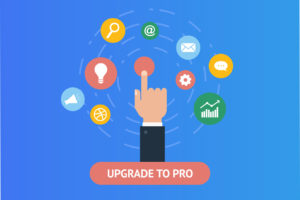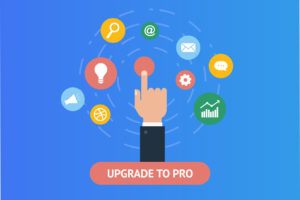
When to Upgrade to ERP
 In a business’ maturation cycle, there comes a point of growth where a company must make a jump from small to midsize business. Before this can happen, though, it is going to require an audit of internal processes and systems that may or may not be slowing down the prospective growth of the business. In today’s marketplace, to remain competitive, this is probably going to mean that an adoption of enterprise resource planning software (ERP) is going to be required. How do you know when it is time to take this step, though?
In a business’ maturation cycle, there comes a point of growth where a company must make a jump from small to midsize business. Before this can happen, though, it is going to require an audit of internal processes and systems that may or may not be slowing down the prospective growth of the business. In today’s marketplace, to remain competitive, this is probably going to mean that an adoption of enterprise resource planning software (ERP) is going to be required. How do you know when it is time to take this step, though?
Your company utilizes too much software
If your company needs several different types of software to handle your everyday business operations, then you are probably wasting efficiency in trying to get each of these programs to work together. This is difficult on your employees, and makes it hard to make adjustments across your entire enterprise. Utilizing ERP software streamlines your business’ processes and puts everything in one efficient package. This keeps a company from experiencing slowdowns, due to confusion across software.
Customer experience declines
ERP software is able to improve your business’ customer experience, since the widespread access and informational access allotted by the software allows you to address customer problems in a timely manner. If your current system is causing customer complaints to stack up, since your employees are having issues finding the correct information or your supply chain is getting messed up, then it is time to find a solution that gives your employees access to company information in an efficient manner.
IT costs continue to skyrocket
As businesses bring in multiple software solutions to address different problems, it can be incredibly taxing on an IT staff. Trying to integrate different software is time consuming and costly for a business. If your IT staff continually needs to grow to implement software solutions that should be simple, then it is time to streamline your efforts and adopt ERP software to consolidate your business’ technical tools.
Plan for data management
As a business continue to grow, so to does the amount of data that a business needs to handle, including employee information, customer requests, and supply chain information. Having problems arise with data management can cause issues across many different aspects of a company’s operation. This can stymie growth, and create more headaches that are unnecessary. For this reason, it’s important to plan for the future, instead of adjust for the present, when it comes to data management. ERP software provides a streamlined and effective way for businesses to manage data in a way that is easily accessible.

